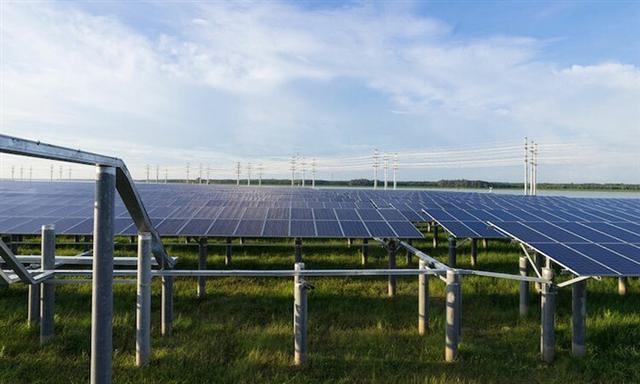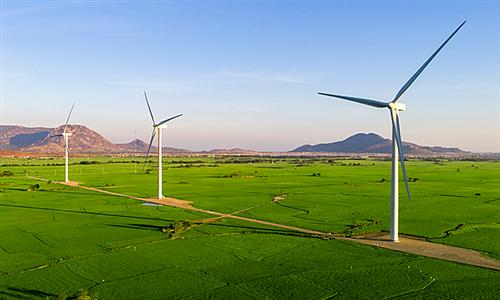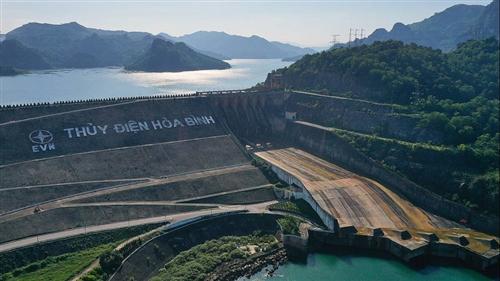Foreign firms gobble up renewable energy plants in Vietnam
Foreign firms gobble up renewable energy plants in Vietnam
Foreign investors have acquired dozens of solar and wind power plants in Vietnam, but officials say this is a normal practice in a market economy.
Dau Tieng Solar Power Complex, owned by a Thai company, in the southern province of Tay Ninh. Photo by VnExpress/An Binh.
|
Thai energy firm Gulf Group recently increased its ownership in two solar power plants in the southern province of Tay Ninh from 49 percent to 90 percent.
The plants, TTC 1 and TTC 2, were jointly invested in by Gulf and Vietnam’s Thanh Thanh Cong (TTC) company last year.
Gulf also owns 95 percent of some wind power projects in the southern province of Ben Tre.
Another Thai firm, Super Energy Corporation, has also been acquiring stakes in a series of solar power plants in southern provinces.
The company said in March that it would invest $475 million in four solar power plants in the southern province of Binh Phuoc and will own a controlling share in these projects.
Other investors from Singapore, China and the Philippines have gained ownership in dozens of solar and wind power plants in Vietnam via stake acquisitions or business ventures.
Industry insiders say the foreign firms are drawn to the incentive feed-in-tariffs (FITs) of 9.35 cents for 20 years for projects completed before June 30 last year.
Hoang Tien Dung, head of the Electricity and Renewable Energy Authority under the Ministry of Industry and Trade, said foreign entities acquiring renewable projects was a legal and normal market mechanism.
Big international energy corporations do not usually start a project from the beginning due to the large amount of time it takes to acquire land and seek approval from local authorities, he said.
This is why local companies, with better understanding of regulations and policies, will have more advantages in doing these initial steps, he added.
The big corporations, meanwhile, have deep pockets and advanced technology at hand to invest in large projects or a group of small projects to lower operating costs, Dung said.
But there are concerns that some small Vietnamese investors have taken advantage of the regulations and obtained permission for renewable projects only to sell them quickly to foreign investors for a profit.
Prime Minister Nguyen Xuan Phuc has recently demanded that the industry ministry look into this issue.
As of May this year, 92 solar power and 10 wind power projects are operating commercially in the country with a total capacity of nearly 6,000 MW, according to the ministry.
Vietnam last month approved a new, lower feed-in-tariff for renewable power at 7.09 cents, 24 percent less than the incentive FIT of 9.35 cents.
The ministry is studying a bidding mechanism for renewable energy projects in the future so they can compete with more traditional projects using coal and gas.






















